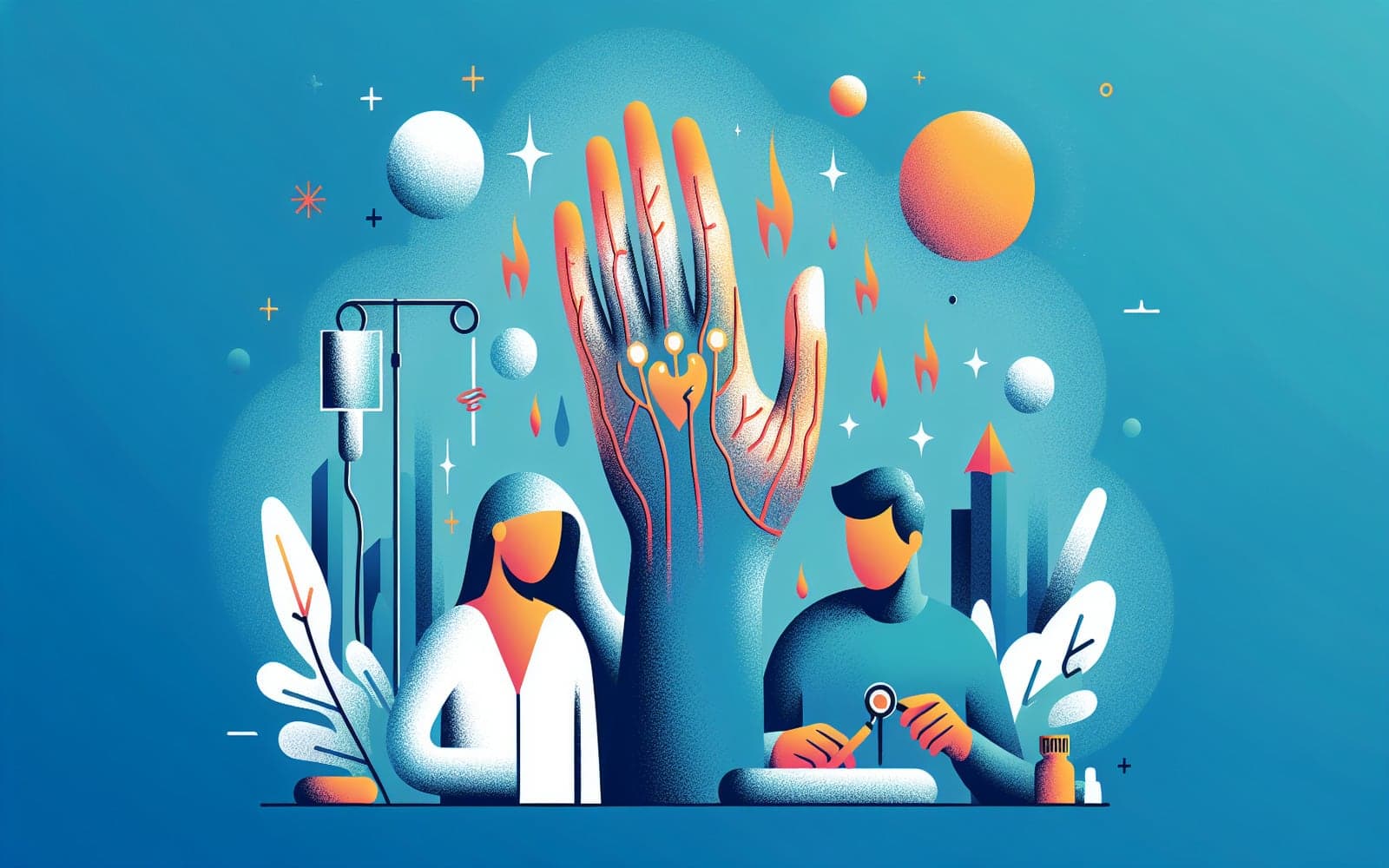The Science Behind Cold Fingers: What Causes Raynaud's Phenomenon?
Published: May 27, 2024
Raynaud's phenomenon is more than just cold hands - it's a complex interplay of blood vessels, nerves, and hormones. But what exactly causes this exaggerated response to cold or stress?
Contents
It's All About Blood Flow
At its core, Raynaud's is caused by an overreaction of the blood vessels in your extremities. When exposed to cold or stress, these vessels narrow much more than they should. This reduces blood flow to the affected areas, causing the characteristic color changes and sensations of Raynaud's.
The Alpha-2 Receptor Connection
Research suggests that people with Raynaud's may have an increased number or sensitivity of alpha-2 receptors in their blood vessels. These receptors respond to the hormone norepinephrine, causing blood vessels to constrict. This could explain why Raynaud's sufferers experience such dramatic narrowing of blood vessels in response to cold or stress.

The Role of Genetics
There appears to be a genetic component to Raynaud's, especially in primary Raynaud's. Studies have found that up to 30% of people with primary Raynaud's have a first-degree relative with the condition. Researchers have identified several genetic markers that may be associated with an increased risk of developing Raynaud's.
Frequently Asked Questions
Not exactly - it's an overreaction of normal circulation.
They can trigger attacks, but don't cause the condition.
Secondary Raynaud's is associated with several autoimmune conditions.
Key Takeaways
While we don't fully understand all the mechanisms behind Raynaud's, it's clear that it involves a complex interplay of vascular, neural, and genetic factors.
Curious about the science behind your cold fingers? Chat with Doctronic to learn more about the causes of Raynaud's phenomenon.Related Articles
References
Flavahan NA. A vascular mechanistic approach to understanding Raynaud phenomenon. Nat Rev Rheumatol 2015; 11:146.
Hartmann S, et al. ADRA2A and IRX1 are putative risk genes for Raynaud's phenomenon. Nat Commun 2023; 14:6156.
Always discuss health information with your healthcare provider.